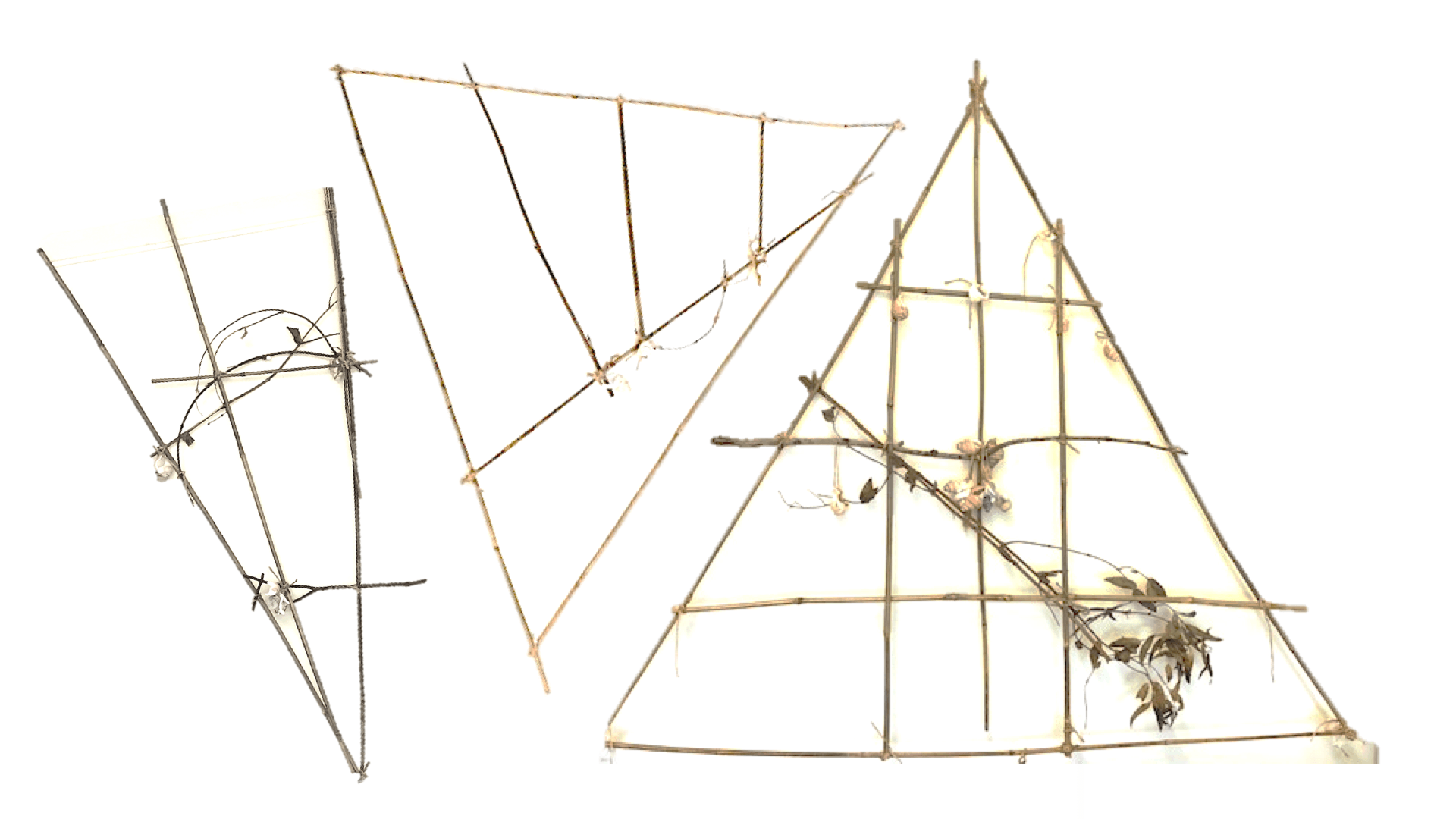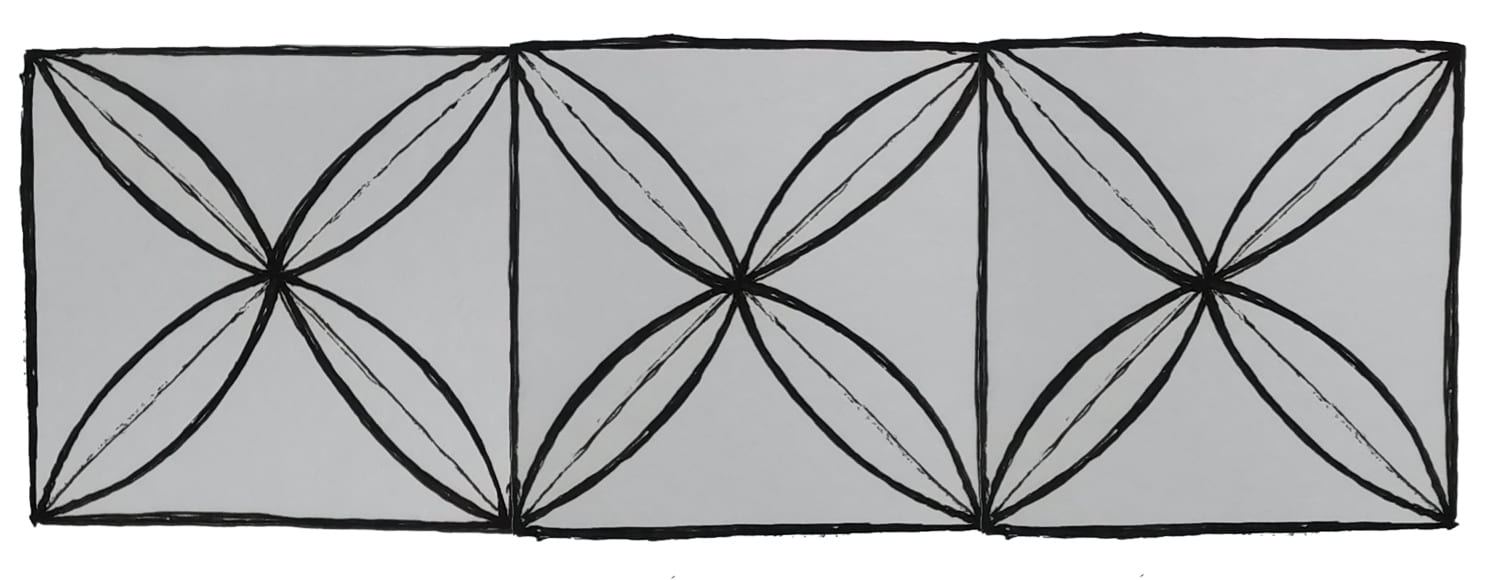About this site
About the Image above
“The image above addresses the notions of communal success and holistic achievement innate to Pasifika peoples. Though we possess and develop our own individual identity and sense of agency over a lifetime, we are never alone in our journey. Our family and the community around us are pivotal in how we define and attain success. Always present no matter what path we take, one’s family is often our primary support system – offering a safe space of encouragement, upliftment, and respect of where one is on their journey.
The current lines within the ocean are motifs which celebrate the art of wayfinding – a cornerstone of Pasifika history and identity. Acting as a physical manifestation of collective knowledge and expertise, shell maps were not taken on their voyages, but rather memorised, with changes made as new information is gained. Everyone involved in its development plays an important role, regardless of experience. Everyone has something to offer, even inexperienced members of the community. This lateral relationship of compassion and mutual respect is integral in the success of our Pasifika people; though hierarchies of status, age and experience are observed, knowledge is always shared within a welcoming, safe and nurturing environment.
Tapa designs which adorn the mountainous landscape evoke our intimate relationship to Moana and Enua – an extension of who we are. Regardless of where you are, there is always respect for our natural environment and the knowledge it contains. Regardless of where we travel to, old land or new, we bring our indigenous knowledge with us and apply it to the land with respect. Wherever our path may take us, indigenous knowledge is always present and there to help us in whatever we do. The intangible hands of our ancestors, family, community, and cultural identity are forever present within our souls and in the world around us.
The muted colours of the environment juxtaposed with the vibrant azure of sea emphasises the sea as the point of connection rather than separation. In a modern context, the sea is often depicted as stark and void, when in reality it is teeming with diversity and full of life. There are many communities scattered throughout the ocean, thriving as their own unit but also connected and part of a much larger system of collective history, knowledge, and culture”.

Leading learning, changing lives; through spirit, stewardship and space (vaa).

This website is based upon a one year pilot critical participatory action research (CPAR) project within the Faculty of Education and Social Work, University of Auckland.
The embodied approaches of engagement within this project align to Pacific history, traditional Pacific knowledge(s) and contemporary Pacific research methodology. The embedding of Pacific cultural onto-epistemology is at the centre of all phases of the project with the main foci for data collection and theorising; being that of a decolonising agenda (Smith, 2012).
Traditionally, teaching the art of wayfinding included specific tools that engaged learners with the complexities of navigation. One such tool is known as the shell map which plots Islands, ocean swells, currents and winds. In this project, the metaphor of shell maps and wayfinding are used in the planned interventions of the project as a cartographic method, to map, reconnect and determine what the University currently provides by way of Pasifika support.
The embodied engagement in the making of shell-maps is a provocation for Pasifika students and Pasifika academics to explore their perceptions of success.

About the Wayfinding Pasifika Success Team
Joseph Ravlich
Master of Architecture (professional) with First Class Honours – 2020
“Coming from a Cook Island Maori and Croatian background has always situated me in interesting positions throughout my educational journey. As a half-cast Pacific Islander, I find myself constantly making sense of the world around me through multiple lenses. I am forever grateful to my mother for immersing my siblings and I in our rich Cook Island culture. Growing up being exposed to the language and being wrapped in family tivaevae as she told stories and sang us lullabies showcased the beauty of our culture, the endless love, and sense of nurturing within us. I am forever proud to be a Cook Islander, to have this blood of our ancestors running through my veins. My success is the success of countless family and friends, both present and past.
Especially within tertiary education, it was a rare occurrence to observe Pasifika people in higher places of power, as well as achieving excellence across architectural discourse. Our cultural identity is still used in surface-level, tokenistic ways. I remember being in a design class for a South Auckland urban renewal scheme, and sighed as cheap adornments of korus and gentrified Polynesian patterns were spread across buildings in a hollow gesture of ‘diversity’. Used couches and a space for rap battles to take place, per our teacher’s suggestion, still sticks in my mind.
I hope that our people are able to let their beauty, knowledge, and expertise shine in the face of a colonised, Western-focused system we live in. We are so much more than the patterns on merchandise, than the one-week-a-year recognition we get. It is up to us to empower each other and challenge educational colonisation one step at a time”.
Esther Ravlich
Bachelor of Science in Microbiology – 2019
Ever since I started schooling I have been keenly aware that how school measured success was not how I personally measured success. Every time I fell into the trap of believing my worth was equated to my test scores, even if I did particularly well, it did not satisfy me on a deep enough level. I felt this kind of dissatisfaction all through primary school and in secondary school I was able to pinpoint what exactly this feeling was. What I valued, cared about and wanted to foster was not at all aligned with the education system or the colonial world as a whole. It was in my first years in university that I understood the education system did not reward students for their ability to understand and learn, instead rote learning and memorisation took the lead. Students were stressing out trying to memorise entire processes without the understanding of the process itself, all for the number at the end of the semester.
It was only when I changed institutions did I feel a palpable difference in student satisfaction and I was able to see why throughout the duration of my degree. The test score at the end of the semester was not the only measure of success. Lecturers, tutors and students alike were encouraged to collaborate versus being kept in a constant state of competition. In changing institutions and consciously choosing something that was not the “leading university of new zealand”, I noticed some friends and family treated me differently. There would be a few jokes here and there around the institution I chose throughout my degree- but I was incredibly happy. The satisfaction I was able to foster with help from the new institution allowed me to complete my degree with confidence. Although my journey was not aligned with what other people thought was success, I felt successful, even with my C grades and even in my “failures”.
Throughout my schooling life I did not recognise my mindset for what it was- Pasifika excellence. I would automatically dissect concepts holistically, I refused to equate my worth and intelligence to a mere number and I was incredibly sceptical of colonial thinking being the only way, the “correct” way. I question and continue to question what the western world tells me is excellence because if anything has been made obvious to me, it is that the western world facilitates individualism and competition whereas Pasifika excellence encourages learning, community, the multifaceted nature of being a human and the ability to connect in spaces where the colonial world sees emptiness and lack of value. I am forever thankful and proud of my thoroughly Pasifika way of thinking and I only get more resilient everyday the colonial world tries to tell me success is something you can tangibly measure whether it be test scores, zeroes in my bank account, followers on social media or which rung I am on the corporate ladder.
Peta Ravlich
Master of Education in Early Childhood Education – 2016
Kia orana tatou katoakatoa.
My name is Peta Ravlich. I was educated and brought up in Rarotonga (Cook Islands). After getting married, I migrated to New Zealand and had four children. I pursed my passion in early childhood education as a mature student when my youngest child was independent and able to commute to college on his own. Pasifika success for me resonates with the Pacific notion of the collective. Notably, we pursue success for parents, families, community, village, island nation, and ancestors; the sacrifices endured by those before us for success not only in our Pasifika environment but also papa’a society.
Pasifika success for me is in the realisation that my indigenous knowledge, epistemology, ontology, and ways of knowing is valid. Success validates my identity, language, culture, declaring that inherited knowledge embedded in me is sufficient. This poem best sums up my view of success and identity:
Kua ui koe e
koai au?
No’ea mai au?
Akarongo mai, kia akakite atu au e, koai au
E tama tamaroa au, e tama tamaine au, e potiki au akaperepereia
Manakonakoia e toku ui tupuna mei po mai
E tumutoa, no toku mateakeinanga
No toku iti tangata
Auraka e taui iaku
Kua kite au e ko’ai au
Kua kite au i toku kapua’anga mai
Kare e ngaropoina
Tei runga i toku paku’ivi
Te irinaki’anga o toku iti tangata
Ka titau au i apai teia apaianga teiaa
Ki te openga o toku pukera
Kua tere mai au na runga i te tua o te moana
I te kimikimi atu i te kite no vao mai
To kotou kite, ta kotou akateretereanga, to kotou iti tangata
Kua rauka mai toku marama, i ta kotou akateretereanga, e to kotou iti tangata
Akaoki iaku, na runga i te Moana Nui a Kiva
E tama tamaroa au e tama tamaine au, e potiki au, akaperepereia
Manakonakoia e toku ui tupuna mei po mai
Kua kite au e koai au.
(Peta Winchester Ravlich, 2018)
Translation:
You ask
Who are you?
Where do you come from?
Listen, hear me, I will tell you who I am
I am a son, a daughter, a little child, treasured
Thought of by my ancestors before the dawn of time
I am a warrior of my household
Of my people
Do not change me
I know who I am
I know my history
Never forgotten
Upon my shoulders
Rest the aspirations, the beliefs, the heritage of my people
I endeavour to carry this load
To the end of my days
I sailed the oceans
To seek knowledge from afar
Your knowledge, your society, your people
I acquired your knowledge, learnt about your society, your people
Take me back, across Te Moana Nui a Kiva
I am a son, a daughter, a little child, treasured
Thought of by my ancestors before the dawn of time
I know who I am.